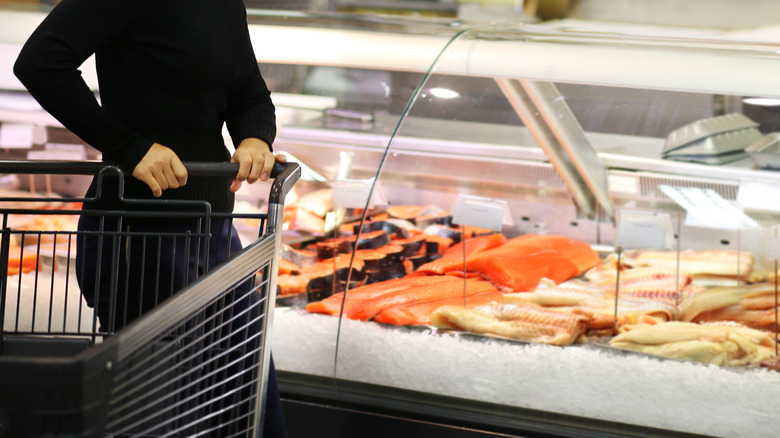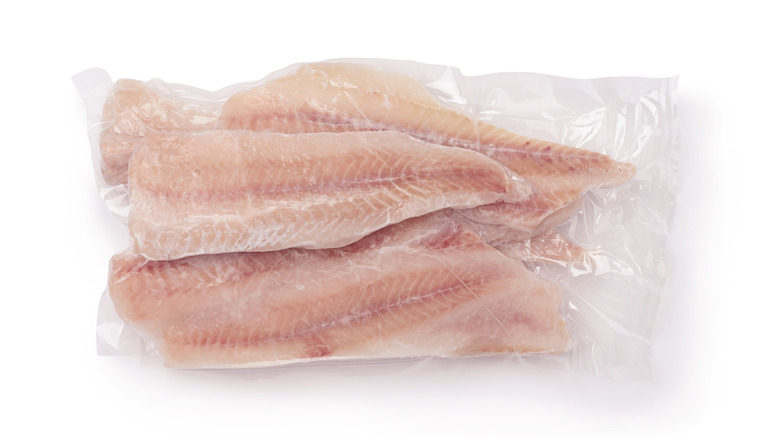Read This Before Buying Vietnamese Catfish
If you're anything like us, you love fresh fish. From a simple seared salmon filet to buttery trout almondine and meaty swordfish skewers, we love the variety offered by the world's rivers, lakes, and oceans. Fish offer a nice change of pace from our usual meat- and veggie-based favorites, and above and beyond being tasty, they can be super-healthy choices. According to Healthline, some of the nutrition boosts offered by fish include high levels of omega-3 fatty acids, vitamin D, and iodine, which can be hard to obtain from other foods.
Given how delicious and nutritious fish can be, it's no surprise that U.S. consumption of fish and seafood has consistently gone up over the years (via IntraFish). But eating fish can be a bit tricky, too. For one thing, it's hard to escape the matter of overfishing, a global problem that threatens fish populations and habitats the world over (via the Environmental Defense Fund). And then there's the alarming practice of something called seafood fraud, in which desirable types of fish are commonly swapped out for less popular species and deceitfully sold to customers in order to turn a profit (via Oceana). Seafood fraud is rampant with many species of fish — and it might be affecting your preferred restaurant order.
Beware of Vietnamese catfish masquerading under another name
Let's say you've waited all week to go out to dinner at your favorite seafood restaurant, and the night has finally arrived. You take your seat, review the menu, and decide to opt for a nice, meaty white fish — sole or grouper, perhaps. Your dish arrives, and it might be delicious, but the chances are staggeringly high that what you're buying isn't sole or grouper at all.
According to Oceana, seafood fraud is a practice that's affecting more and more types of fish. Most commonly, grocery stores, fishmongers, or restaurants will advertise selling a certain desirable type of fish, but inside the package or on your plate will be a cheaper and far less popular type — even though you've paid the higher price for what you wanted. This practice occurs between 25 and 70 percent of the time, making the chances high that you've been swindled when buying fish at the store or eating it out (via Oceana). According to The Healthy, more and more stores and restaurants are swapping out fish labeled "sole" or "grouper" for what is really an inexpensive, foreign-farmed white fish called Vietnamese catfish. The taste of this fish might be ok, but beware: A study published in the Journal of Food Science and Agriculture found that up to 80 percent of Vietnamese catfish samples were contaminated by Vibrio bacteria, a genus responsible for most cases of shellfish poisoning (per The Healthy).
So take care when eating out, and definitely avoid buying anything labeled as Vietnamese catfish when you're out shopping for dinner.

